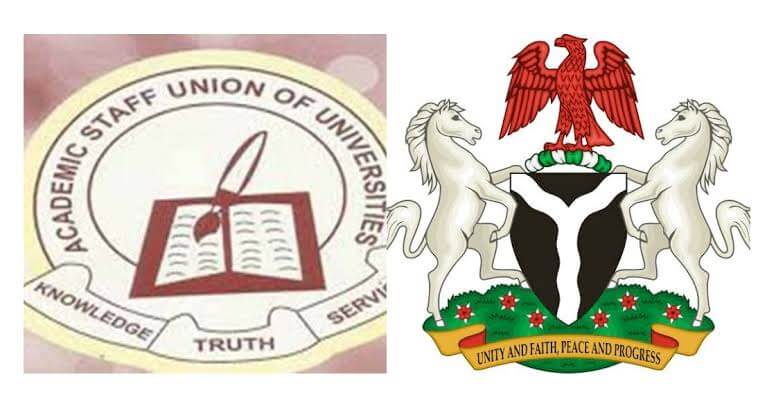Strike Tension: FG Warns ASUU with ‘No Work, No Pay’ Policy
By Bala Salihu Dawakin Kudu
Democracy Newsline Newspaper – October 13, 2025
The fragile calm in Nigeria’s tertiary education sector may once again be shattered, as the Federal Government has issued a stern warning to the Academic Staff Union of Universities (ASUU) over its proposed strike action, reaffirming that the “no work, no pay” policy remains firmly in place.
In a press statement released on Sunday by Boriowo Folasade, Director of Press and Public Relations at the Federal Ministry of Education, both the Minister of Education, Dr. Maruf Tunji Alausa, and the Minister of State for Education, Prof. Suwaiba Sai’d Ahmed, expressed deep disappointment at ASUU’s decision to activate industrial action despite what the government described as “tangible progress” in ongoing negotiations.
> “The Federal Government has demonstrated sincerity, patience, and goodwill in its dialogue with the Union,” the statement read. “Virtually all the concerns raised by ASUU have been addressed, including the introduction of a substantial percentage of teaching allowance and significant improvements in the conditions of service of academic staff.”
According to the ministers, the current administration under President Bola Ahmed Tinubu’s Renewed Hope Agenda has made significant strides in prioritising the welfare of university staff, restoring confidence in the university system, and stabilising the academic calendar after years of disruption.
The statement also clarified that the few unresolved issues ASUU raised fall within the jurisdiction of the governing councils of individual universities — bodies that have now been reconstituted and empowered to address such internal matters.
Reiterating the Federal Government’s stance on accountability and labour discipline, the ministers emphasized that the “no work, no pay” law remains an extant policy and would be strictly enforced should ASUU proceed with its planned strike.
“The ‘no work, no pay’ policy remains an extant labour law of the Federal Republic of Nigeria, and the government will be guided by this law should academic activities be disrupted in the nation’s universities,” the statement warned.
This warning has heightened concerns among both academic staff and students, many of whom fear a repeat of past prolonged strikes that crippled academic calendars and derailed academic careers.
Despite the government’s assurances, ASUU maintains that not all concerns have been adequately addressed. Insiders within the union allege that while some financial commitments have been fulfilled, critical issues like revitalisation funds, university autonomy, and discrepancies in the implementation of agreements remain unresolved or delayed.
Sources say ASUU is frustrated by what it describes as “cosmetic” efforts by the government to appear committed, while allegedly sidelining genuine structural reforms needed to revitalise Nigeria’s deteriorating university system.
For many students and their families, the latest standoff evokes a sense of déjà vu. Years of stop-start academic sessions, often triggered by strikes, have plagued Nigeria’s public universities, eroding trust in the system and forcing many to seek alternatives abroad or in private institutions.
Abdulrahman Yusuf, a 300-level student at Ahmadu Bello University, voiced his concerns:
“We’re always the ones who suffer. If the lecturers go on strike, it’s our futures on the line. The government and ASUU need to find common ground.”
In what appears to be a final appeal before possible escalation, the Education Ministers urged ASUU to reconsider its strike threat and return to the negotiating table.
“Dialogue remains the most effective and sustainable path to resolving disagreements. Government remains open to engagement at any level to prevent unnecessary disruption in the education sector,” the statement concluded.
While stakeholders across the education sector hold their breath, the Federal Government’s message is clear: it will not entertain further disruption of the academic calendar, and any action contrary will be met with the full enforcement of existing labour laws.
As tensions rise, the nation watches closely — hoping that this latest deadlock does not spiral into yet another cycle of disruption that could further erode the fragile foundations of Nigeria’s public university system.












